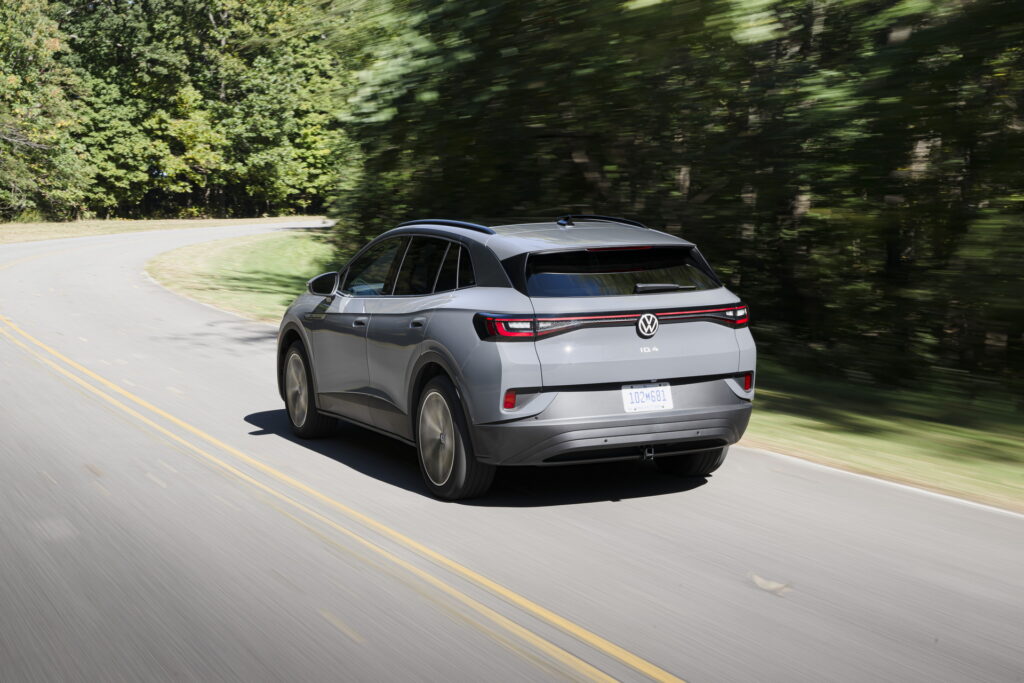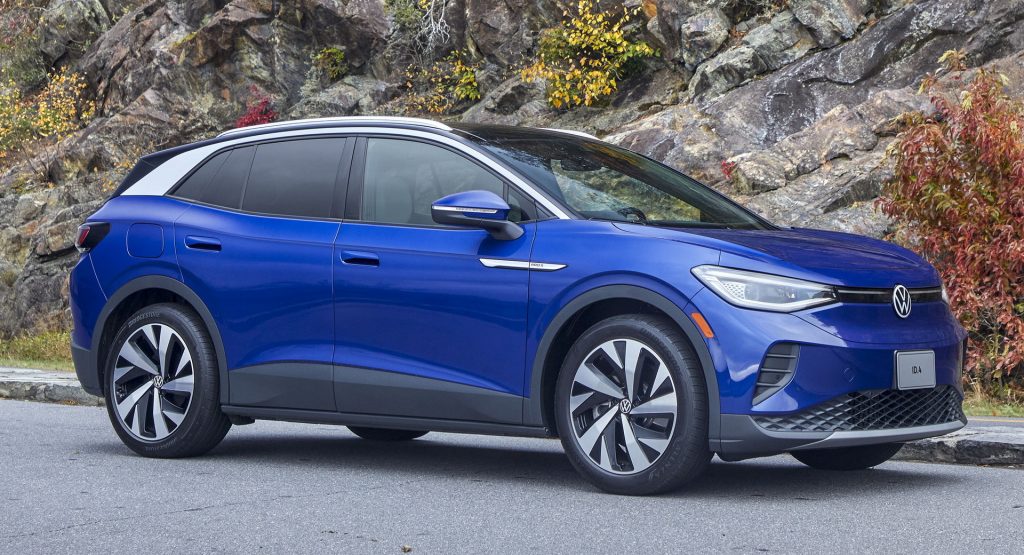Volkswagen has ambitious electric vehicle plans but has hit a snag in the United States and been forced to issue a recall for a number of ID.4 models.
According to the car manufacturer, the high-voltage battery management control module of the ID.4 may reset or the pulse inverter may be deactivated while driving. If the HV battery management control module is to reset while driving, the electric motor will not be supplied with power for the duration of the reset. If this happens, or if the pulse inverter is deactivated while driving, there will be a loss of propulsion without any warning, increasing the risk of a crash.
The high-voltage battery management control module issue is caused by overly-sensitive self-diagnosis software, potentially triggering an unnecessary reset of the control unit. Meanwhile, a software failure may lead to an incorrect evaluation of internal measurement values, prompting the pulse inverter to deactivate.
Read: 2023 VW ID.4 Gains New Entry-Level Variant With 208 Miles Of Range For Just $37,495

Owners of ID.4 models with the issue will be alerted through a warning in the instrument cluster.
Some 20,904 examples of the ID.4 are involved in the recall. All of these were built between May 26, 2020 and January 20, 2022. ID.4 models not involved in the recall have improved software.
In October 2022, Volkswagen’s Product Safety Committee decided a recall wasn’t necessary and wanted to issue a service campaign instead, noting that there was no unreasonable risk because the steering and braking functions remain unaffected, meaning the EV remained fully controllable even if the electric motor stopped working. However, in January 25, 2023, the decision was made to issue a recall.
Dealers and owners will be notified of the recall on or before March 31, 2023. VW will update the software of both the high-voltage battery management control unit and the pulse inverter.




